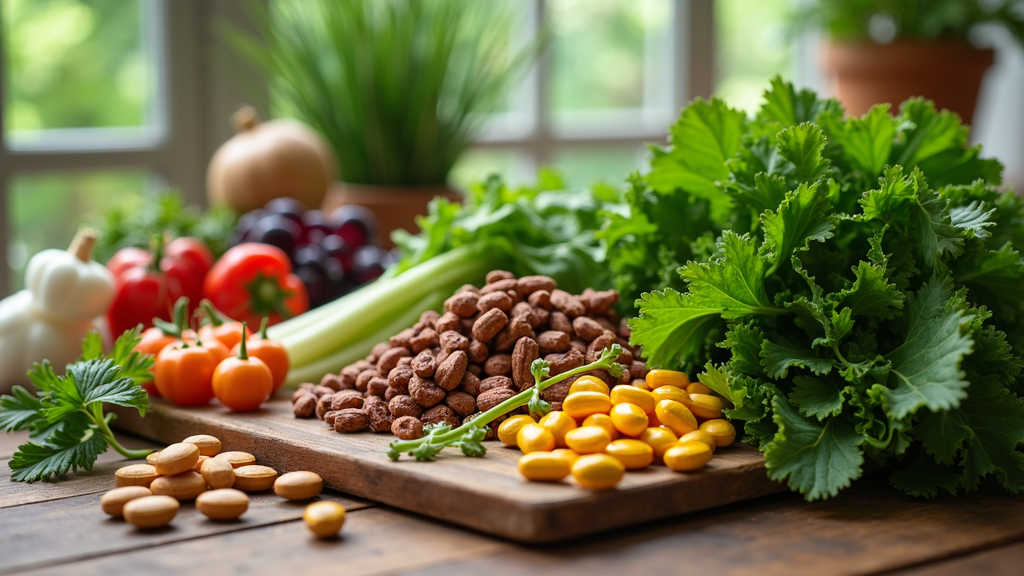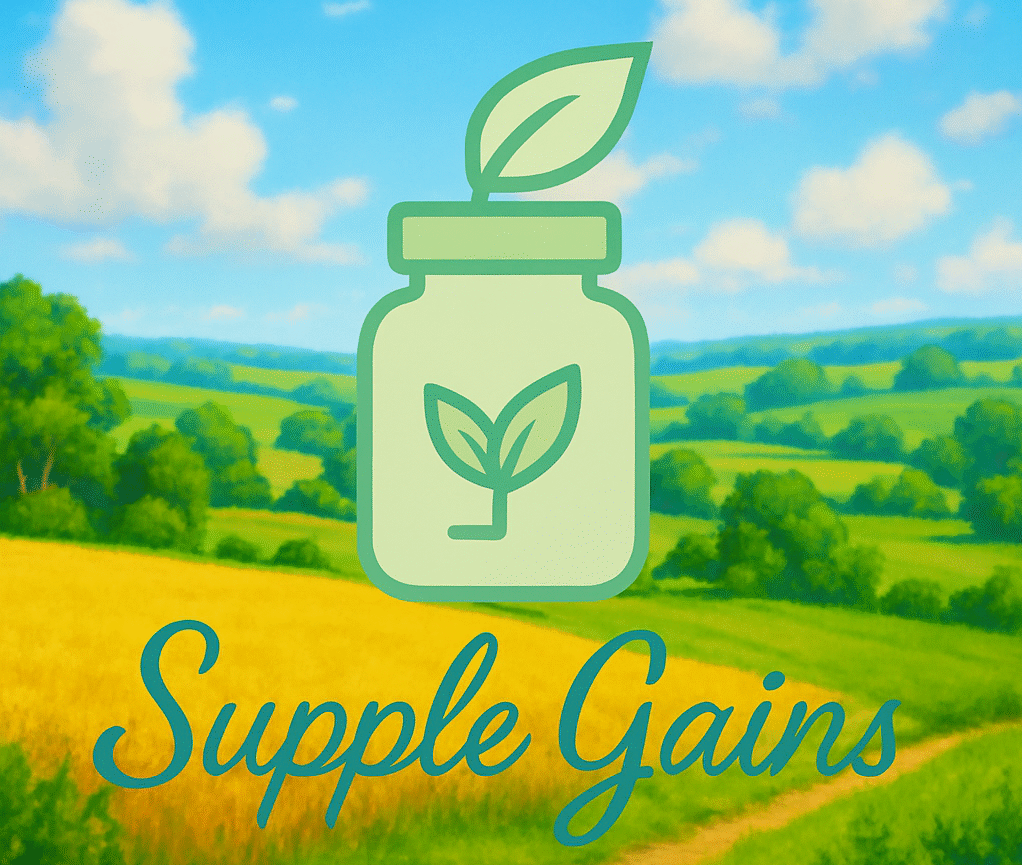If you’re following a plantbased diet, you’ve probably heard a lot of talk about the benefits. Things like more fiber, lower risk for some diseases, and the good feeling that comes from eating lots of plants often make headlines. But getting all the nutrients your body needs can be tricky sometimes, especially if you’re not watching for a few gaps that can sneak in. That’s why I’m sharing my go-to list of supplements worth considering to help keep things balanced on a plantbased diet.

Why Supplementation Matters on a PlantBased Diet
Plantbased diets pack plenty of good stuff: vitamins, minerals, antioxidants, and way less saturated fat. But cutting out or limiting animal products can mean missing out on some nutrients that are harder to find, or absorb, from plants alone.
Some vitamins and minerals, like B12 or iron, just don’t show up in high amounts in most plant foods. Even healthy, wellplanned vegan or vegetarian diets sometimes land a little short for a few nutrients. Plantbased folks aren’t alone here; the meateaters I know sometimes struggle with nutrients, too. But for anyone focused on a plantfilled lifestyle, a little extra support can go a long way.
The Big Ones: Key Supplements to Consider
Everyone’s nutrition needs are personal, so it’s smart to talk things over with your healthcare provider or a registered dietitian. Still, there are a few nutrients I see come up again and again for people eating plantbased. Here’s my own cheat sheet for what to focus on (with clear explanations for why each matters):
- Vitamin B12: necessary for nerve health and energy, and reliably found only in animal products, so almost all vegans need a supplement or fortified foods.
- Vitamin D: supports immune health and bone strength, and it’s tough to get enough from sun or food if you’re indoors a lot, live in a northern climate, or have darker skin.
- Iron: helps move oxygen in your blood. Plantbased iron isn’t absorbed as well as animalbased (heme) iron, so levels can sometimes get low.
- Omega3s (ALA, EPA, DHA): these fatty acids support heart and brain health. Flax, chia, and walnuts have ALA, but EPA and DHA (the most useful forms for your body) are mainly in fatty fish or algaebased supplements.
- Calcium: keeps bones, teeth, and muscles strong. Some plant milks and tofu are fortified, but intake can vary.
- Zinc: plays a role in immune support and cell repair but isn’t as easy to absorb from plants.
- Iodine: supports thyroid health. Most reliable source is iodized salt, but some avoid added salt, and sea veggies have unpredictable iodine content.
How Each Supplement Fits In
Vitamin B12
B12 stands out as the one supplement I would recommend to pretty much everyone on a plantbased diet. Your body needs B12 for making new red blood cells, protecting nerves, and keeping your brain sharp. No reliable plant source exists, so supplements or B12fortified foods (like some cereals or nutritional yeast) are the usual options. A simple daily or weekly B12 tablet is affordable, easy to take, and super important for longterm health. Missing out on B12 can lead to fatigue or even serious nerve issues over time. For those new to plantbased eating, keeping up with B12 is one of the smartest habits you can pick up early on.
Vitamin D
Vitamin D can be a little slippery. It’s made in the skin when you catch sunshine, but cloudy climates, sunscreen, and time indoors mean lots of people, not just vegans, are low. Plantbased sources are few; fortified products like nondairy milks are your best bet, but for some, a vitamin D supplement pays off yearround. Your doctor can check blood levels to see if you’d benefit from extra vitamin D. Vegan D3 is now widely available and is sourced from lichen instead of animal products. It’s wise to look for this kind specifically if you want to keep things completely plantbased.
Iron
Beans, lentils, tofu, and spinach all offer iron, but your body grabs it way more easily from fish and meat than plants. That doesn’t mean every vegan needs an iron pill. A lot comes down to your individual needs and iron status. I recommend regular blood tests, especially for people who menstruate, to see where you stand. When supplementing, choose a gentle iron formula and take it between meals for best absorption; pair ironrich meals with vitamin C foods, like oranges or peppers, to make the iron easier to absorb. Getting a good balance of iron is especially helpful for athletes, teens, and anyone feeling unusually tired or weak.
Omega3 Fatty Acids (EPA, DHA)
If you love walnuts, flax, chia, and hemp seeds, you’re already knocking out your ALA omega3 needs. Still, the body isn’t great at turning that ALA into EPA or DHA. Algae oil supplements are a plantbased way to bridge that gap. I like these for anyone who wants an edge for heart, eye, or brain health, especially if you’re not eating fish. Algae oil is shelfstable and easy to find nowadays; many brands even offer capsules you can take with a meal. Some people notice improved focus and less joint stiffness after adding EPA and DHA.
Calcium
Leafy greens, tofu, tahini, almonds, and fortified plant milks help cover calcium needs, but the numbers don’t always add up. Calcium is really important for bones and for muscle and nerve function. If your daily intake falls short, a lowdose calcium supplement (in the 500mg range) can help fill in the gaps without overdoing it, since super high intakes from pills can sometimes mess with heart or kidney health. For kids, teens, or adults over 50, checking your calcium intake more closely makes sense. Combining your supplement with vitamin D can also give absorption a boost.
Zinc
Zinc pops up in pumpkin seeds, beans, and whole grains, but absorption from plants is lower due to compounds called phytates. I suggest watching your intake if you skip animal products. Look for a daily multivitamin that has zinc, or eat a bit more of those plant sources. If you notice frequent colds, slow healing, or hair changes, that’s a prompt to get your zinc levels checked. Some people opt for a small, standalone zinc supplement, but don’t go overboard since too much zinc can throw off other minerals in your body.
Iodine
This one is sneaky because most people get iodine from iodized salt. If you use little or no salt, or prefer natural sea salt that isn’t fortified, an iodine supplement is worth considering. Sea vegetables like nori and dulse contain iodine, but amounts are variable; eating too much can have side effects. Most vegan multivitamins have a bit of iodine built in, and the thyroid depends on this mineral for hormone production, impacting metabolism and overall health. For families, women who are pregnant, or those with specific thyroid risks, keeping an eye on iodine is extra important.
Extra Nutrients Worth Watching
Some other vitamins and minerals are worth paying attention to, especially if your diet is less varied or you’re in a growth stage (like teens, pregnancy, or breastfeeding):
- Selenium: Found in Brazil nuts, but the content can vary. Two to three nuts weekly usually covers your needs, or a multivitamin with selenium can be helpful.
- Protein: Most plantbased eaters hit their protein targets just fine, but active people or those with higher needs could benefit from a wellbalanced vegan protein powder made from pea, soy, or rice protein. It’s a simple way to add to shakes or breakfast bowls on busy days or around workouts.
- Choline: Important for your brain and liver, found in soy, broccoli, and quinoa. If you rarely eat these, check with a dietitian about whether a supplement could be useful. Choline is especially crucial for moms-to-be and for older adults concerned about memory.
In addition to those above, keep an eye on your B vitamins like riboflavin and B6, and minerals such as magnesium and copper; most people get enough thanks to a varied plant diet, but tracking every so often can give peace of mind.
Common Questions About Supplements and PlantBased Eating
This diet switch up brings lots of new questions. Here are a few I hear often:
Do I need to take all of these supplements?
Probably not. Some folks do really well just focusing on B12, maybe D, and eating a solid variety of plant foods. Others, depending on their lifestyle, health status, and preferences, benefit from a few others. Personalized guidance from a dietitian is really useful for sorting this out; your routine should fit your goals and your body’s signals.
Is it ok to use a single multivitamin?
Many people find a vegan multivitamin handy, especially if it’s designed for plantbased diets. Just check nutrient levels, since sometimes you still need extra B12 or vitamin D, depending on what’s inside. Some multis don’t contain iron or iodine, for example, so read the label carefully to avoid gaps.
Are “natural” plantbased supplements better?
“Natural” sounds nice, but what matters more is the quality, purity, and bioavailability of the supplement. A wellknown brand that’s thirdparty tested is usually a better bet than fancy packaging. Checking for certifications or reading reviews can help you pick out the best choice for your needs.
Can I get everything I need from food alone?
Plenty of plantbased eaters meet all of their needs through food, especially those eating lots of fortified options and being extra intentional with choices. For some vitamins, though (especially B12), food alone often doesn’t fully cut it, so targeted supplements are still helpful. For most people, a mix of smart food choices and the right supplements is the easiest route to feeling great long term.
Simple Steps for PlantBased Supplement Success
Piling on tons of pills isn’t the goal; balance is. Here’s what’s worked for me and what most plantbased eaters find helpful:
- Start with a foodfirst approach: Eat plenty of beans, lentils, nuts, seeds, leafy greens, whole grains, and fortified products like plant milks.
- Add supplements for any nutrients you’re missing: Track your typical meals, then check against daily recommendations to find shortfalls. There’s plenty of free apps or tools for this. If you’re not sure, a food diary for a week can shed light on where to tweak things.
- Check bloodwork regularly (if possible): Especially for B12, iron, vitamin D, and sometimes zinc or iodine, so you can tailor your routine to your personal needs. Bringing lab results to a dietitian can help make a custom plan.
- Pick quality brands: Choose trusted brands and stick with products that are designed for vegans or vegetarians when possible. Look for reputable testing and transparency from the manufacturer.
The bottom line is that supplements can be a pretty handy safety net for plantbased eaters, but the main goal is always a tasty, varied, plantpacked plate. With a few smart choices and paying attention to regular checkins, staying healthy and energized on a plantbased diet feels a lot easier. Don’t forget to enjoy the foods you love and stay curious when trying new recipes and ingredients. Eating plantbased isn’t just about what you skip—it’s also about all the flavors, colors, and healthy benefits you gain in the process.
